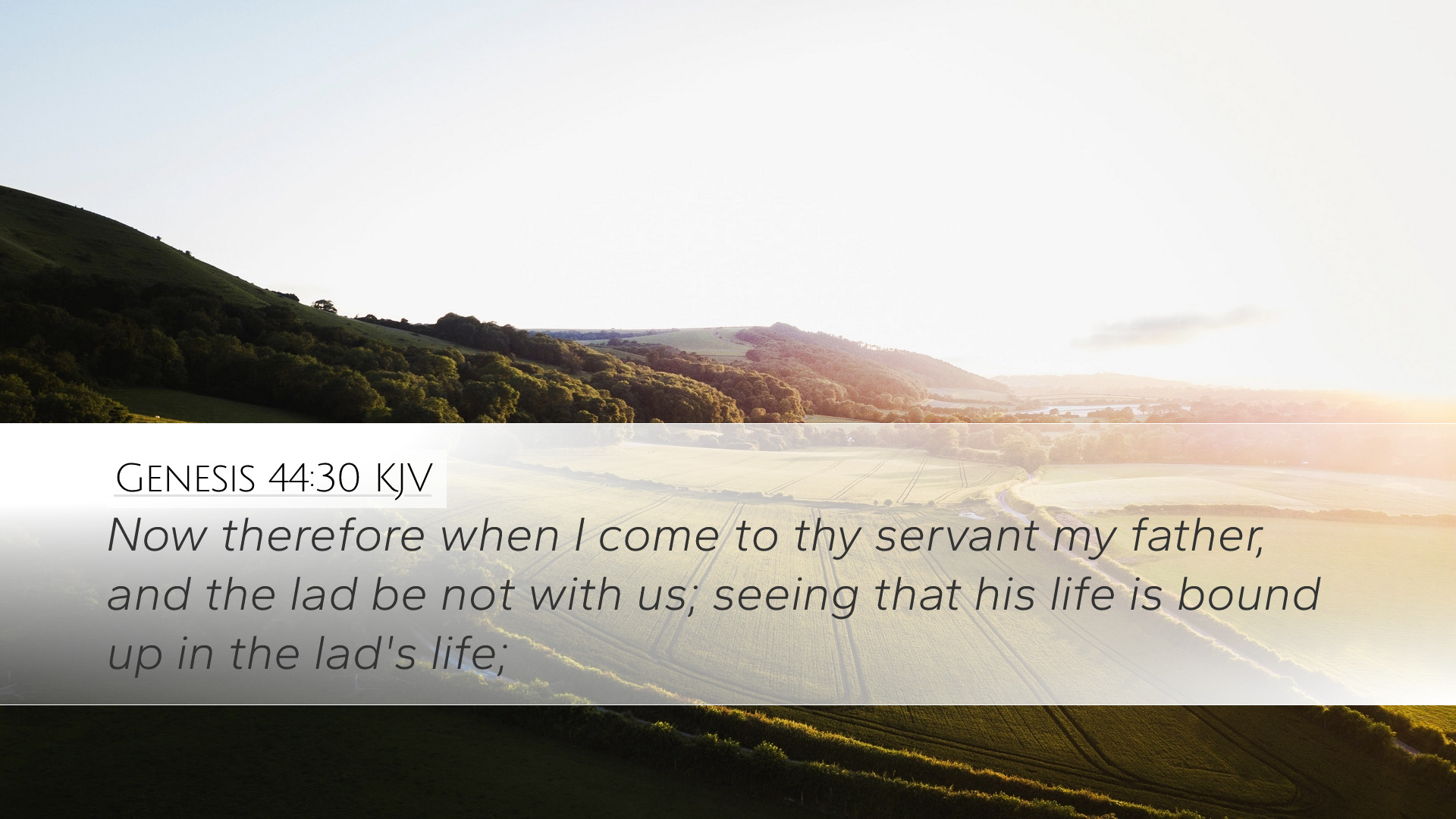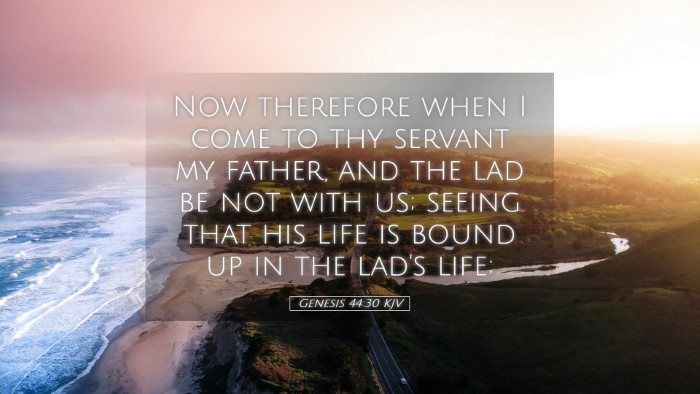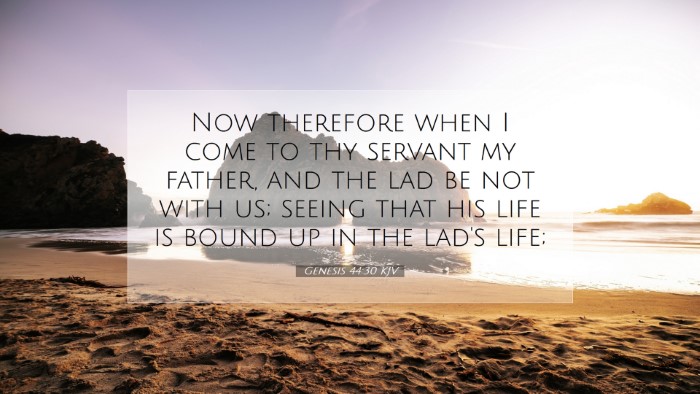Genesis 44:30 - Commentary and Insights
Genesis 44:30 states: "Now therefore when I come to thy servant my father, and the lad be not with us; seeing that his life is bound up in the lad's life." This verse is a pivotal moment in the narrative concerning Joseph and his brothers, revealing deep familial bonds and the emotional weight of their situation.
Contextual Understanding
To fully grasp the significance of Genesis 44:30, one must consider the context of the events. This moment occurs after Joseph has tested his brothers' character and piety. The brothers, unknowingly interacting with Joseph, the brother they sold into slavery, are confronted with the potential loss of their youngest sibling, Benjamin.
Insights from Public Domain Commentaries
Matthew Henry's Commentary
Matthew Henry observes that the emotional intensity in this verse is palpable. He highlights that Judah's plea to Joseph reveals the depth of fraternal loyalty and responsibility. Judah articulates that their father, Jacob, is in a fragile emotional state due to the presumed loss of Joseph and the potential loss of Benjamin:
- Fraternal Bonds: Henry emphasizes the strong bond Judah feels for his father and brother, illustrating the complexities of familial relationships.
- Emotional Appeal: The phrase "his life is bound up in the lad's life" signifies how deeply connected Jacob’s wellbeing is to Benjamin’s presence, showcasing the psychological trauma still affecting the family.
Albert Barnes’ Notes on the Bible
Barnes delves into the implications of Judah’s statement regarding “life being bound up.” He posits that this reflects not only emotional attachment but also hints at the spiritual undertones within family ties:
- Spiritual Connections: Barnes suggests that this verse points toward broader themes of redemption and sacrifice within the family unit.
- Judah's Leadership: Judah's words position him in a role of responsibility that he has not exhibited in the past, indicating a transformation in his character from a former schemer to a protector willing to sacrifice himself for his brother.
Adam Clarke's Commentary
Clarke provides a detailed interpretation of the cultural and social implications reflected in Judah's discourse. His analysis includes:
- Cultural Understanding: Clarke points out that the weight of family honor and unity was paramount in ancient societies, and any threat to them had severe implications.
- Judah as a Christ Figure: Notably, Clarke identifies Judah’s willingness to take Benjamin’s place as evocative of future redemptive themes found in Christ's sacrificial role, offering himself for humanity's sake.
Theological Implications
Genesis 44:30 serves as a rich tapestry of theological thought, emphasizing several key themes vital for pastors and theologians:
- The Nature of Sacrifice: Judah’s statement can be perceived as an early reflection of the sacrificial system that would later be codified in Mosaic Law.
- Redemption and Atonement: This moment foreshadows a larger narrative in Scripture about atonement, where the substitution of one for another becomes a central motif.
- Family Dynamics and Restoration: The emotional turmoil depicted reveals the need for reconciliation and healing within families, a theme that resonates throughout biblical history.
Application for Pastoral Ministry
For pastors and church leaders, this text offers valuable lessons on communication, emotional intelligence, and understanding familial relationships. It also provides a backdrop for discussing the themes of sin, consequence, and redemption, which are central to the Christian faith:
- Encouragement for Families: Emphasizing the importance of familial support and honor in church teachings can lead to stronger congregational cohesiveness.
- Preaching on Sacrifice: The theme of one sacrificing for another can be a profound teaching tool in sermons focused on Jesus’ atonement and love.
- Building Community: Encouraging communities of faith to understand their shared journeys allows for deeper connections among members.
Final Thoughts
Genesis 44:30 serves as a poignant reminder of the complexities within family relationships and the power of love and sacrifice. Through careful examination of the emotions and responsibilities depicted by Judah’s words, readers are invited to reflect on their lives and their relationships with both family and God. This verse not only moves the narrative forward but also enriches theological understanding and offers practical applications for daily life.


